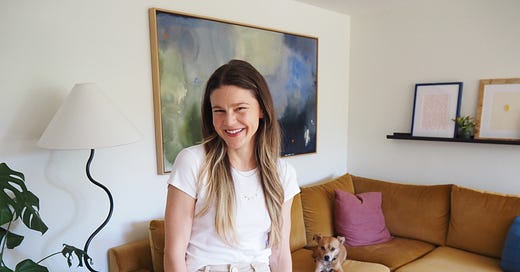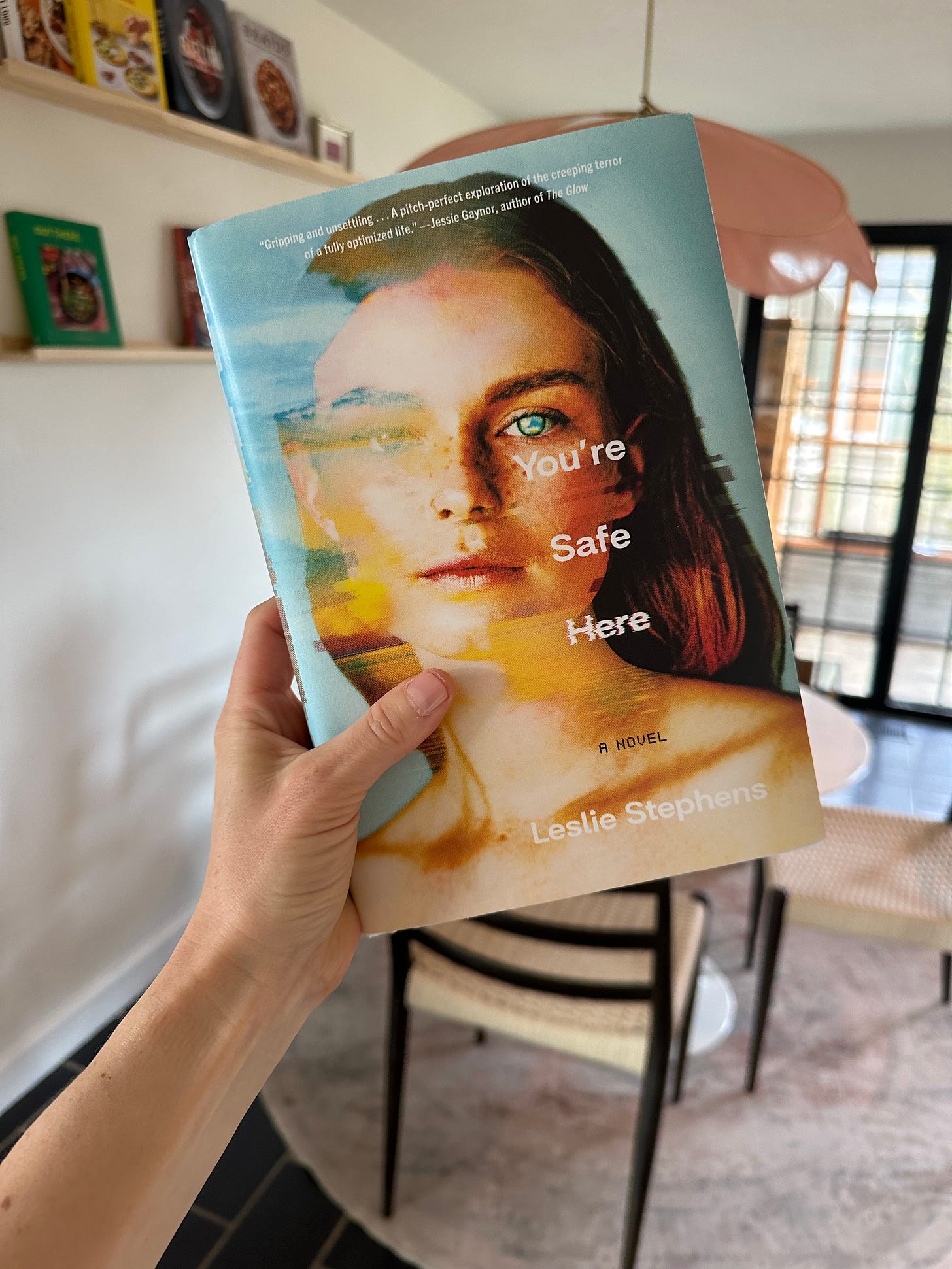So Many Beautiful Things: A Conversation with Leslie Stephens
On being safe, listening to our bodies, ambition addiction, social media addiction, the importance of rest, ecotherapy, climate change, optimism, and dog joy.
Intimate conversations with our greatest heart-centered minds.
I met
here on Substack when she wrote an essay for Beyond about how her enchanting dog Toast helped her through a painful divorce. We quickly became friends. Despite having a few decades between us, we have an uncanny amount in common: love of dogs, go-go-go personalities that struggle to rest, daily walks, sleep trauma, love of chocolate, fear of climate change alongside a heartfelt desire to help the planet, love of salads, desire to help those in need, and more. Thoughtful, kind, generous, funny, wicked smart, and earnest, Leslie is what my mom would have called a good egg.Leslie writes the wildly popular
(Top Ten Culture Newsletter) where she writes about food, health, beauty, nature, and travel through the lens of living a meaningful life. A graduate of Wellesley College, she’s currently earning her master’s in counseling, with specializations in addiction and ecotherapy, from Lewis and Clark College in Portland, Oregon.When I learned Leslie had a debut novel coming out, I jumped at the chance to interview her. I will admit, when it came time to read the book, I had my fingers crossed that it was good. As it turns out, I could have let my fingers rest: You’re Safe Here is beautifully written, tightly plotted, and bursting with all the things that matter to Leslie: saving the environment, staying sane, staying healthy, and helping others do the same.
In a nutshell, it’s 2060. Much of the world is in environmental ruin: Manhattan is underwater, San Francisco decimated by wildfires. The WellPod, a solitary wellness pod that drifts about the Pacific Ocean cut off from all contact with others, has just been launched by WellCorp, the largest tech company in the world. Each guest has an Injectable implant which allows for around-the-clock mental and physical health monitoring. For newly pregnant, Maggie, whose fiancée Noa works for WellCorp, the pod also offers a much needed break as their relationship has hit troubles. But whilst Maggie is adrift at sea, Noa discovers the WellPods have a faulty history and there’s a major storm rolling in.
Here’s Leslie reading one of my favorite passages from the book!
⭐️Today’s interview includes a book giveaway! Leslie is generously gifting three readers a signed copy of You’re Safe Here. If you’d like to be one of the recipients, please add “Safe” after your comment. The winners will be chosen at random on Monday, June 24th and notified by email. (Shipping is limited to the United States)⭐️
You know how I love to hear your thoughts. Please share in the comments below! ❤️
So much of this story is embedded in the various characters’ desire to be safe. What does “safe” feel like to you?
You're going straight into the heaviest of the hitters! The book is written from three perspectives: Maggie, Noa, and Emmett. The first story that came to me was Maggie's. I was in Savasana in a yoga class and I had this image of this woman floating on a pod in this completely encapsulated environment in the middle of the Pacific Ocean. At that time my life was so chaotic that I think I had that fantasy because it felt really safe to feel like everything is under control. For a long time that was my definition of safety: everything is under control. That’s very trauma informed. There's no ambiguity in life. But from the time that I began writing this book until now, my idea of what is safety is has changed so much. For me now, safety is about having a community where people really see you and receive you and hold you. Safety feels like having the baseline needs met and then having a community that will support you.
I absolutely love that. In these WellPods, the person’s health is tended to meticulously. In certain ways, this sort of scrupulous attention is appealing. So many of us long for the medical knowhow to care for ourselves in a fluid and thorough manner. But it can also become obsessive and overwhelming – what is termed Orthorexia. Are we going overboard? One of the things I appreciated about the novel is even though it's in the future, we’re struggling with those same things now.







